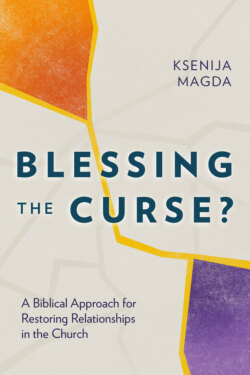Читать книгу Blessing the Curse? - Ksenija Magda - Страница 16
На сайте Литреса книга снята с продажи.
Hierarchies as Sanctifying the Curse
ОглавлениеIn the groundbreaking book Die Soziologie der Jesusbewegung: Ein Beitrag zur Entstehungsgeschichte des Urchristentums, Gerd Theißen describes the unavoidable destiny of any movement – becoming an organization with fixed leadership positions and hierarchies.[5] E. Schüssler Fiorenza adds to Theißen’s thesis by recognizing that women typically leave leadership positions after a movement becomes an organization.[6] In a movement, leaders work hard, endure strife on a daily basis, and receive little gratuity for their toil. In an organizational structure, leaders secure power and often receive economic gratification. This is an important finding that can be easily observed on many levels and in many situations in churches. Although churches and Christian organizations should pay their workers fairly, churches often approach this issue in an inequitable way that resembles secular organizations. In fact, churches can be even worse. In most places I visited, there were only rare examples of equal employment or equal pay for men and women who were ministering full-time in the church.
Research has shown that such hierarchical structures cripple an organization’s development[7] by seeking to accommodate leaders and ensure their longevity in the organization rather than focusing on the cause for which the organization exists. Hierarchies also become battlefields, where the struggle for influence and power is the leading motive for existence. In some cases, hierarchies despise and belittle the people at the bottom – or, for a church, those in the pews – and those who are at the bottom don’t realize the strength being wielded by the leaders at the top, who so closely represent the cause. The Baptist tradition insists, unlike some other traditions, on the priesthood of all believers.[8] One reason I remain Baptist is their commitment to involving all church members in the daily decision-making process of the church (and anyone who has decided to be a member is included). Yet in spite of this biblical determination to involve all, hierarchies of men often degrade the importance of the “other priests” in local churches (women in particular, though it could be anyone whom the gods have relegated to lower positions). They, too, often believe that someone has to have the last word in a dispute. But this belief is part of the hierarchies of sin and develops from the idea that some have the power to rule over others. An institution that takes the route of equality under Christ and servant leadership will find ways to include, rather than exclude, and to work in everyone’s interest.
To give contextual examples of how the sanctification of the curse by the church is impacting the global stage, I would like to examine some issues that are at the forefront of the UN’s sustainable development agenda.[9] Projections for sustainability are gloomy, although there have been attempts to downplay the gloom.
